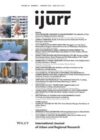
A solitary tree where Amazon rainforest once stood. Agricultural lands have drastically less carbon storage capacity as compared to native rainforest. Image by Rhett A. Butler/Mongabay.
The “New Republic” – the period of Brazilian history that started with the election in 1985 of the first civilian president after a military dictatorship and the enactment of a democratic “citizen” constitution in 1988 – came to an end a few weeks ago, with the election of Jair Messias Bolsonaro, a reformed military captain, as president. This October, Brazilians not only elected Bolsonaro, but his party – the PSL, officially registered in 1998 – gained the second largest share of Congressional seats and was part of the coalition that elected the governors of São Paulo, Rio de Janeiro and Minas Gerais, three of Brazil’s most powerful States.
How can we explain the victory of a congressman who during his 28 years of Congressional presence was politically irrelevant and whose presidential campaign initially appeared anecdotal, as he showed up with a discourse of liberating gun control and a defense of Brazil’s dictatorship, and its generals and torturers? The following somewhat chaotic notes, written in the heat of a moment, of which the consequences cannot be fully seen yet, might provide some initial insights in addressing this question.
- Bolsonaro led a coalition, not of parties but of interest groups, present both in society and in the body politic, which I gloss here as the following: the bullet, the Bible, the “agro” group, and ultra-neoliberals. The first group includes army members, military police and some members of the judiciary, whose slogan is bandido bom e bandido morto (a good bandit is a dead bandit). By this they mean that, in light of the national security crisis represented by the rising number of homicides, the response should be to arm the population with firearms for self-defense, and to increase incarceration and police killings. For this group, human rights and the “disarmament statute”, which restrains civilian possession and use of guns, are obstacles to be overcome, while human rights defenders should be eliminated.The second group is “the Bible”: over the last 20 years, Pentecostal evangelical churches have proliferated in Brazil. They have grown as cultural, economic and political forces by expanding their presence in popular neighborhoods and by gaining control of radio and television media groups, spreading the ideology of individual prosperity, and preaching against “immorality” represented by LGBT groups, feminism and sexual freedom.
The third group is the “agro” group of large-scale farmers: 0.8% of the agricultural establishments control 42.5% of farming land. The agrobusiness sector was able to expand its economic power tremendously through transgenic and technological control of production and expansion towards the center north of Brazil, now reaching the southern part of the Amazon. Their enemies are environmental laws, indigenous and quilombola rights, and the MST, the landless movement fighting for agrarian reform.
The fourth group consists of ultra-neoliberals, who advocate radical privatization, shrinking the state, fiscal austerity etc. This ideology has grown in Brazil through thinktanks and youth movements such as the MBL (Movimento Brasil Livre, Free Brazil Movement). MBL began with a group of former students linked to the Koch Industries-funded Students for Liberty and the Atlas Network. Together with Vem pra rua (“Come to the street”) and other economically liberal and politically right-wing groups, including Bolsonaro and his group, MBL organized the street protests that supported the coup d’etat/impeachment of former PT (Workers’ Party) President Dilma Roussef in 2016.
Since 2005, the coalition that sustained Lula da Silva’s PT government began to disintegrate, as the mensalão scandal burst loose – this term refers to the monthly payment to the center-right parties who were in control of Congress and were “selling” their support to the governing party. The scandal exposed a historically common practice, but was portrayed by the media and opposition parties as the PT’s responsibility. The anti-PT movement grew quickly as Operation Car Wash advanced, a judicial investigation into allegations of corruption, involving contractors and politicians, starting with the state-controlled oil company Petrobras. The operation included more than one thousand warrants for dawn raids, temporary and preventive detention, and a range of coercive measures. Led by the federal judge Sérgio Moro (who oversaw Lula’s process and imprisonment and who has now become the Minister of Justice under Bolsonaro) and Federal Police, the corruption scandal grew in part because it challenged the longstanding impunity of politicians and business leaders, and because it was largely supported by the media. Several high-level politicians were involved in the investigations: current and former presidents, governors, and Senate and Congress members from several parties including the PT, PMDB and PSDB. With an increasing right-wing presence on the streets and broad support from corporate media, the investigation into the intimate relationship between large corporations and politicians was soon converted into an anti-corruption/anti-PT/pro-neoliberal reform movement.
- The last years of the PT administration (2014-2016) were marked by economic crisis, with rising unemployment and poverty rates interrupting the virtuous cycle of economic growth and income distribution of the PT government’s earlier years (2003-2013). The economic crisis combined with the political crisis, and the anti-PT movement captured this massive feeling of dissatisfaction, placing all responsibility for the situation on the PT, “the Left” and its symbol – Lula. The PT became the scapegoat for the crisis, and the idea of an armed order “cleaning up the mess” coupled with a religious call (Bolsonaro’s campaign slogan was “Brazil over everything. God over everybody.”) gained momentum. As has been the case with fascist movements throughout history.
- It is not possible to fully understand Bolsonaro’s popular support without acknowledging the immanent presence of violence, racism and sexism in Brazilian culture. Brazilian history is a history of land-grabbing, of the genocide of indigenous people, of the cruelty of slavery and of deep inequality, a history that has never really become the past. For many, the recent increase in struggles against racism, the resistance of indigenous groups and the increasing presence of feminist voices in the public realm, together with the presence (for the first time in Brazilian history) of “the domestic servant’s daughter” seated next to “the master’s son” in university and airplane seats, represented an unbearable transgression.
- “The market”, which means financial capital, clearly supported Bolsonaro. Every time that the electoral polls climbed in support of his presidency, the Brazilian real gained power and the stock exchange went up.
- Bolsonaro’s campaign was basically based in the new technologies of power: social media controlled by economic power, the massive distribution of fake news through Whatsapp messages, no presence in TV debates, interviews only for supportive TV channels and newspapers.
- Yes, right-wing, authoritarian, fascist governments are on the rise, winning elections in different parts of the world. This is a global process, actively promoted by local actors.
- Bolsonaro led a coalition, not of parties but of interest groups, present both in society and in the body politic, which I gloss here as the following: the bullet, the Bible, the “agro” group, and ultra-neoliberals. The first group includes army members, military police and some members of the judiciary, whose slogan is bandido bom e bandido morto (a good bandit is a dead bandit). By this they mean that, in light of the national security crisis represented by the rising number of homicides, the response should be to arm the population with firearms for self-defense, and to increase incarceration and police killings. For this group, human rights and the “disarmament statute”, which restrains civilian possession and use of guns, are obstacles to be overcome, while human rights defenders should be eliminated.The second group is “the Bible”: over the last 20 years, Pentecostal evangelical churches have proliferated in Brazil. They have grown as cultural, economic and political forces by expanding their presence in popular neighborhoods and by gaining control of radio and television media groups, spreading the ideology of individual prosperity, and preaching against “immorality” represented by LGBT groups, feminism and sexual freedom.
Finally, even more than Bolsonaro’s policies – which, considering the high level of corporativism and embedded interests in the Brazilian state, are not easy to transform radically or rapidly – the biggest concern is what kind of social and political behavior a presidency like his will authorize and legitimize. Killings, attacks and persecution of LGBT persons, indigenous communities and university professors and schoolteachers have already started.
But, we know that 47 million Brazilians voted against him. And together, they will resist.
– Raquel Rolnik (University of São Paulo)
